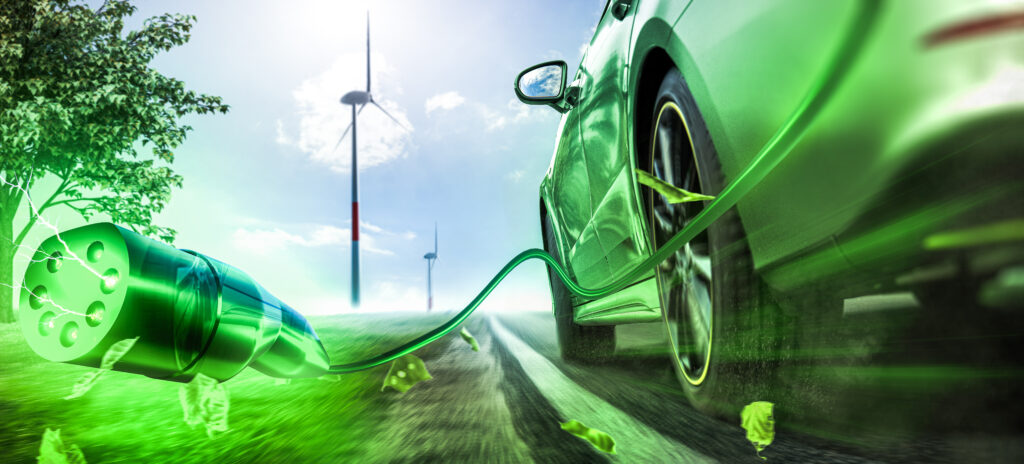It’s plain to see that the automotive industry is moving towards a greener future. Bans on new internal combustion engine cars are coming into force across Europe and many automakers, including Volkswagen, are aiming for 2030 as the year in which 70%+ of their sales will be from electric vehicles.
But for the automotive industry to be truly sustainable, a greater shift needs to take place. Zero emissions cars are one piece of the puzzle, but in order to finish the set, the supply chain including the manufacturing and powering network, needs to be as sustainable as the cars we drive. Automakers understand the importance of carbon neutrality not only to the planet but also to the consumer and are taking major steps in the drive to net zero carbon emissions. Carmakers such as Volkswagen are aiming to be a fully carbon neutral company by 2050 and Mercedes aim to have a fully carbon neutral passenger car fleet by 2039
However, the software in our cars is just as important as the hardware when it comes to making sure the future of driving is sustainable.
Software-Powered Sustainability
“When I was young,” said Cubic Telecom CEO Barry Napier in an interview at this year’s IAA conference in Munich, “I wanted a loud exhaust and high brake horsepower. The next generation want to know ‘Does it connect to my phone?’ and ‘What applications are in it?’”
Software will come to define our experience with cars in the coming years, with hardware taking a backseat. However, software will play a far greater role in the cars of tomorrow than just powering applications and connectivity.
In-car charging software will enable more efficient and economical charging. For example, when you plug your car into charge at home, your car will choose to charge at a time when there is less demand on the energy grid. What’s more, it will be able to predict, based on your driving habits, when you will next to drive – enabling better charging that will avoid excessive battery wear.
Cars will also start to get software updates to improve performance – just like the phones and laptops we use every day. These over-the-air updates (OTA) will be able to improve battery and motor efficiency at a stroke. Cubic Telecom’s connected software enables vehicles to connect to the external world allowing carmakers to access their vehicles remotely and push OTA firmware or software updates and to collect data. This means vehicles are become better-equipped as they age, ensuring that OEMs can continuously improve the lifecycle of the car, increase efficiency and comply with the latest regulations globally – all of which supports OEM’s in reaching their Carbon Neutral goals.
Relying on software to improve component performance will also reduce the amount of waste generated from old parts. If, for example, you can improve a car’s acceleration through adding some new code, rather than changing valves and camshafts, manufacturers and modifiers won’t be lumbered with useless spare parts.
Watch: The Drive to Net Zero Panel Discussion at Reuters Automotive 2021

Data Centre Dilemmas
While electric and connected cars promise benefits for the environment, it’s important to remember that emissions and sustainability go way beyond the exhaust pipe (or lack thereof).
As cars rely more on the internet and connectivity, they will also require greater processing power at data centres around the world. It’s essential, therefore, for the world’s automakers to ensure that their entire business operations are carbon neutral and sustainable. After all the advances that have been made in alternative fuels, it would be remiss of automakers to undo them all by relying on fossil fuels to power their data centres.
Powering these data centres will also rely on governments and energy companies, not just automakers. As such, the automotive industry would do well to pressure governments around the world to improve the sustainability of energy creation – so that the best efforts of drivers and consumers don’t go to waste.
Virtuous Circle
If automakers, governments, and consumers can align their interests, however, then it’s likely that the improvements in sustainability will become self-perpetuating.
Over-the-air updates will lead to a lower demand on the energy grid, whilst also reducing the need for replacement parts. This lower demand will make it easier to transition the energy grid to renewable sources. Then, as the energy grid becomes based more on renewable energy sources, the new electric cars we buy will become even more green.
The transition from hardware-defined cars to software-defined cars will be transformative for the industry but, the potential benefits far outweigh any potential risks – if the transition is carried out with sustainability in mind.
Cubic are OEM-independent and have experience helping OEMs from across the transport landscape on the journey to carbon-neutrality, while pushing innovation towards a more sustainable form of mobility.
Watch: The Drive to Net Zero Panel Discussion at Reuters Automotive 2021

